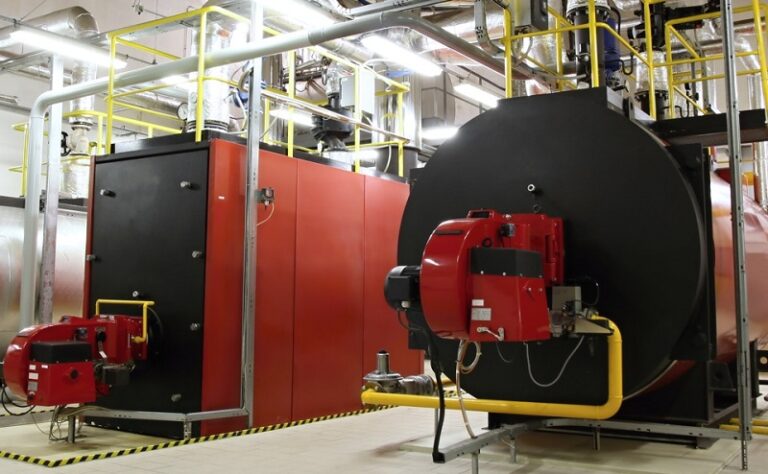How energy policy affects fuel expenditure
The energy policy plays a crucial role in the dynamics of fuel spending, as government decisions directly influence prices and access to different energy sources. With the growing concern about climate change and the need to adopt a more sustainable approach, many countries are implementing strategies that seek to promote the transition to renewable energies. However, this transition is not without challenges, as it also affects the economy of families and companies that depend on fossil fuels.
Energy policies in different countries play a crucial role in the fuel spending of citizens and companies. These policies not only determine the prices of fossil fuels but also influence investment decisions in sustainable technologies and the development of renewable energies. Analyzing the impact of these policies allows for a better understanding of the dynamics of consumption and the costs associated with using different types of energy.
Influence of Public Policies on Fuel Prices
The public policies established by governments have a direct impact on fuel prices. Through taxes like the IEPS (Special Tax on Production and Services) in several countries, the final cost that consumers must pay is regulated. When these taxes increase, consumer prices skyrocket, which in turn affects family and business budgets for other essential expenses. In this sense, the fiscal management of fossil fuels becomes a matter of utmost importance.
Incentives for the Development of Renewable Energies
Many nations have begun to implement incentives for the development of renewable energies, thus promoting an energy transition. These incentives can include subsidies for the adoption of cleaner and more efficient technologies, which in the long term lead to a reduction in dependence on fossil fuels. Such is the case with the use of biofuels and other forms of sustainable energy that, while requiring an initial investment, have the potential to significantly reduce fuel spending in the future.
Social Impact of Energy Policies
Fuel consumption does not affect all social strata in the same way. A study by the IDB has revealed that households with low incomes spend considerably less on transportation and fuels compared to those with higher incomes. This indicates that energy policies must take social equity into account and seek ways to ensure that the transition to cleaner and more economical energy does not penalize the most vulnerable sectors. To achieve this, it is essential to create the necessary structure that allows for an equitable distribution of the benefits derived from energy policies.
Challenges and Opportunities in the Energy Sector
The current energy crisis presents both challenges and opportunities for formulating appropriate policies. On one hand, the increasing demand for energy and the need to reduce greenhouse gas emissions require meticulous planning. On the other hand, this translates into the need to innovate and seek alternatives that ensure responsible and sustainable consumption. Initiatives that promote energy efficiency in transportation, such as the use of electric vehicles, are becoming a priority on the political agenda.
Collaboration Between Sectors
Collaboration between different sectors, both public and private, is vital to optimize fuel spending. Companies must actively participate in implementing sustainable practices and researching efficient technologies. In this sense, it is essential to work together to foster a culture of energy saving and sustainability, in addition to facilitating communication among all stakeholders involved in fuel consumption. For more information, you can consult about the collaboration between sectors.
Government Initiatives Towards a Sustainable Future
Government initiatives also play a key role in reducing fuel spending. Through public policies, measures can be implemented that encourage energy consumption reduction and infrastructure modernization. Continuous research and development of new technologies are fundamental to ensuring a successful energy transition. Moreover, renewable energies offer a pathway towards a future less dependent on fossil fuels. An example of this is the advancements in the use of electric vehicles, where Seat and Endesa are revolutionizing the landscape in Spain.
The Role of Technology in Fuel Economy
Emerging technologies are changing the way energy is consumed. The evolution of electric vehicles and innovation in hybrid technology are designed to optimize fuel use. Additionally, solutions are being developed that help in reducing fuel consumption, making transportation more efficient and less costly. For example, analyzing the fuel economy in modern vehicles has shown promising results in terms of energy savings.
Towards Sustainable Development: The Future of Energy Policy
To effectively address the challenge of fuel consumption, it is essential for energy policies to be oriented towards sustainable development. This implies a focus on responsible production and consumption, which allows satisfying energy needs without compromising the future of the planet. The implications of environmental policy must also be considered and how it may affect investment decisions, especially concerning the energy transition expected in the coming years.
In summary, the impact of energy policy on fuel spending is a complex issue that encompasses multiple dimensions, from price regulation to promoting innovative technologies. It is crucial for societies and governments to work together to create a more sustainable and efficient future in energy use. It is worth noting the expectations for the future, with the possibility that vehicles of different types, such as hybrids, will continue to evolve and improve in efficiency, as will be addressed in the news that Roborace will impact the automotive industry in the coming years.
Impact of Energy Policy on Fuel Spending
The energy policy of a country plays a crucial role in how citizens and companies manage their fuel spending. Government decisions, from price regulation to subsidies and incentives for renewable energies, can significantly alter consumption behavior. For example, subsidies for fossil fuels can lead to an increase in the use of these fuels, encouraging waste and hindering the transition to more sustainable alternatives.
Furthermore, policies aimed at promoting the development of clean technologies and the use of renewable energies act as catalysts in reducing fuel consumption. These measures are essential for mitigating the negative impact of fossil fuels on the environment and promoting a model of sustainable development. Similarly, policies that integrate energy efficiency not only benefit the environment but also represent economic relief for consumers, allowing them to reduce their fuel expenses.
Analysis of purchasing power of households also reveals that energy policies disproportionately affect low-income families, who dedicate a larger portion of their resources to energy consumption. This poses a social issue that must be addressed by governments through policies that promote equity in energy access.
In summary, the intersection between energy policy and fuel spending is complex and multifaceted, having a direct impact on the economy of citizens and on the progress towards a more sustainable future. The decisions made today in this area will have significant repercussions on the economic and environmental structure of future societies.





